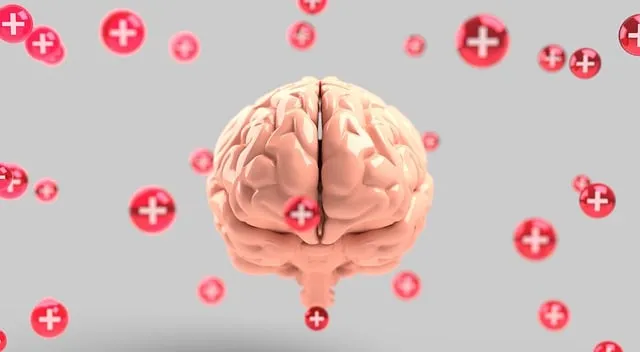Media portrayal significantly impacts societal perceptions of mental health, with positive representations fostering empathy and encouraging help-seeking behaviors, while negative depictions perpetuate stigma. Organizations like Kaiser Permanente Centennial recognize this, offering emotional intelligence workshops, stress management programs, and comprehensive mental health services tailored to individual needs. By promoting accurate media representations and self-esteem improvement resources, Kaiser Permanente drives conversations about integrating accessible mental health support into everyday life, addressing the crucial need for sensitive care and cultural competency training in the community.
Mental illness representation in media significantly influences public perception and understanding of mental health. This article explores how inaccurate portrayals can perpetuate stigma, while examining successful initiatives like Kaiser Permanente’s approach to mental health services in Centennial. We delve into strategies for promoting accurate and helpful mental illness representation in media, emphasizing the importance of responsible storytelling. Discover how these efforts contribute to improving mental health support and reducing stigma, especially with Kaiser Permanente’s leading role in Centennial.
- Understanding the Impact of Media Portrayal on Mental Health Perception
- Kaiser Permanente's Approach to Mental Health Services in Centennial
- Strategies for Promoting Accurate and Helpful Mental Illness Representation in Media
Understanding the Impact of Media Portrayal on Mental Health Perception

Media portrayal plays a significant role in shaping societal perceptions about mental health. The way mental illnesses are depicted in films, television shows, and news media can influence how viewers understand and respond to these conditions. Positive representation can foster empathy, reduce stigma, and encourage individuals to seek help. Conversely, negative or stereotypical portrayals may perpetuate misconceptions, leading to increased social isolation for those living with mental health challenges.
At organizations like Kaiser Permanente Centennial, recognizing the impact of media is crucial. They offer a range of services, including emotional intelligence workshops and stress management programs, designed to support mental well-being. By promoting accurate representations in media and providing resources for self-esteem improvement, these initiatives work towards creating a more supportive environment for individuals facing mental health issues. Additionally, understanding the power of media can drive conversations about integrating mental health services into everyday life, ensuring accessibility and care for all.
Kaiser Permanente's Approach to Mental Health Services in Centennial

Kaiser Permanente, a renowned healthcare provider, has implemented a comprehensive approach to mental health services in Centennial. Their strategy focuses on addressing the unique challenges faced by individuals in this community, ensuring accessible and culturally competent care. By offering a range of specialized services, Kaiser Permanente aims to empower residents with the tools for better mental well-being.
The organization prioritizes cultural competency training for its healthcare professionals, enabling them to provide sensitive and tailored support. Additionally, they facilitate social skills training and encourage the development of self-care routines, recognizing these as fundamental aspects of mental health management. Through these initiatives, Kaiser Permanente strives to create a supportive environment, making mental healthcare more inclusive and effective in Centennial.
Strategies for Promoting Accurate and Helpful Mental Illness Representation in Media

Media plays a significant role in shaping societal perceptions about mental health. To challenge stereotypes and promote understanding, it’s crucial to implement strategies that ensure accurate and helpful representation. One effective approach is collaboration between media professionals and mental health experts. By involving individuals with lived experiences and professionals like those from Kaiser Permanente, which offers mental health services in Centennial, content creators can gain insights into the nuances of various conditions. This collaboration ensures stories are told authentically, promoting empathy among viewers.
Additionally, media outlets should prioritize diversity in storytelling. Representing a range of ethnicities, genders, and socio-economic backgrounds with accurate mental health portrayals is essential. Incorporating characters with different experiences of depression prevention or crisis intervention guidance can offer broader perspectives to audiences. Such initiatives not only foster mental wellness but also encourage viewers to seek help when needed.
Media representation of mental illness plays a pivotal role in shaping public perception. By promoting accurate and empathetic portrayals, we can foster a more understanding society. Kaiser Permanente’s initiatives in Centennial demonstrate a commitment to enhancing mental health services, reflecting the need for positive media influence. Through collaborative efforts involving professionals, creators, and community members, we can challenge stereotypes, reduce stigma, and ensure that those facing mental health struggles receive the support they deserve, both in real life and in media. This holistic approach, combining healthcare access and responsible storytelling, is key to creating a more inclusive and supportive environment for everyone’s mental well-being.






